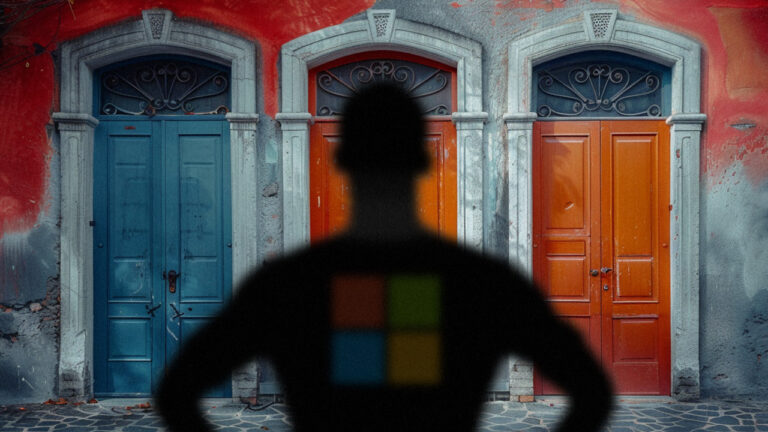So are we a simulation or not?

Simulation Hypothesis is the idea that our Universe may be computer simulationlike virtual reality or a game. This idea has been very popular lately. Many books and articles have been written, many films and series have been made, many words have been said from Elon Musk. In general, the hypothesis has left a big mark in pop culture.
The roots of the idea go back to Plato, but he fully developed the hypothesis Nick Bostrom. In 2003 he published his article “Are you living in a computer simulation?”, in which he proved the correctness of Plato. Bostrom described 3 statements in his article, and one of them, according to him, is true.
Statements :
It is likely that humanity will die out before reaching the “post-human” phase. (phases when we will be over technologically advanced)
Each post-human civilization is unlikely to run a significant number of simulations of its evolutionary history or its variations.
We live in a simulation.
If we translate this into human and reformulate it into a thesis for the idea of simulation, then we get:
Bostrom’s arguments for the Simulation Hypothesis:
Existence of advanced civilizations: He argues that if technological civilizations continue to develop and do not die out (which is highly unlikely), then they will gain the ability to create highly realistic simulations covering entire universes or parts of them.
Simulations galore: If such simulations are possible, then advanced civilizations will have a strong motivation to create them. He assumes that the number of simulated realities will greatly exceed the number basic (real / non-artificial) realities, given the possibility of the existence of many simulations within each civilization.
Probability of being in the simulation: If a civilization capable of creating simulations exists, then it is likely that we live in one of these simulations, and not in the basic reality. This is based on the statistical argument that the number of simulated realities will be much greater than the base realities, making it more likely that we will be in a simulation.
In addition to the development of technology and the possible abundance of simulations, supporters of the idea rank fine tuning the universe to arguments in favor of the hypothesis. The fundamental physical constants of the universe, as speed of light, gravitational constant, Planck’s constant etc., have precisely such values at which life and the universe in general can exist. Which undoubtedly suggests that all this has just such meanings, not because of the universal chaos, but was specially carefully adjusted by the developers.
All of these thoughts come from the assumption that civilizations are still able to create such ultra-accurate simulations. It is to this point that the most questions are asked, because the creation of a universal simulation requires the solution of many fundamental problems.
Discreteness of the world
The computer or virtual world has discreteness (this is due to the specifics of computer computing). discreteness – this is the presence of minimal, elementary particles of something. That is, the virtual world must have the smallest objects, like a bit of time, a bit of space (essentially a pixel) and a bit of matter.
Does our world have discreteness?
Modern physics says no. The best we have so far is quantum mechanics, which says that such discrete structures are not fundamental.
David Tong (Professor at Cambridge) has an excellent article on this topic. There he explains in detail that discreteness or whole numbers are not considered elementary, but only appear FROM continuous, permanent structures. An example can be given of how the ruler itself (a piece of wood or plastic) acts as the basis, and divisions are already applied later, discretizing a continuous ruler.
Classical computers are not able to simulate continuity, since they use only discrete bits in their principle of operation.
Therefore, on a conventional computer, no matter how powerful it is, to simulate the universe will not work.
Simulation on a Quantum Computer
We have already figured out that on a classical computer there is no way to create a complex structure of our world with all its continuous structures. But many adherents of the idea believe that the universe is simulated not on a conventional computer, but on a quantum computer.
Why quantum?
Quantum computers differ from conventional ones in that they use not only the usual 2 bit states, like 0 and 1, to work. Quantum computers appeal qubits, which can be in 3 states: 1, 0 and in a superposition of two states. In a superposition, a qubit is both 0 and 1 at the same time. This allows quantum computers to work with continuous structures. So they can fully simulate quantum effects.
It would seem that the issue has been resolved. And now it is clear that our the world is just rendered on powerful quantum computer. But as always, not everything is so simple …
Such a simulation must have an incredible accuracy. But a quantum system can be accurately modeled only if the number of qubits in the system is equal to the number of qubits in a quantum computer.
Systems as complex as our universe, made up of a huge number of particles, can only be simulated on quantum computers with the same number of qubits as there are particles in the universe.
In fact, in order to simulate our universe, one more other universe is needed. No super-civilization even dreamed of such computing power.
Of course, you can start to think that somehow this is possible, and we are generally under the hood of a flying saucer between the universal alcoholic, acting also as a battery. But this is a matter of faith. Since it is impossible to prove or disprove it.
Results
The idea of the structure of the world has always been determined by the level of development of civilization.
In primitive times, when animals were the center of everything, the world stood on elephants and turtles. After the work of Newton, people began to perceive the world as a large deterministic mechanism. It is not surprising that in today’s world, where everything depends on computing power, people began to think that the universe is a big computer simulation.
This is a very interesting hypothesis, incredibly valuable for science fiction writers and just dreamers. But it has almost nothing to do with science.
The idea is to build on a foundation of “maybe” and “if …”. And from the very beginning it runs into the problem of the possibility of simulating such systems. And despite the fact that there are strong arguments against the hypothesis, it still remains unfalsifiable, since you can always add some refinements to plug the logical holes. But the problem is that because of this, the hypothesis becomes impossible to prove or disprove.
Therefore, the simulation hypothesis turns into a kind of religion, completely tied to faith. You are free to believe in whatever you want, but you should not impose your faith without the opportunity to prove you are right.
The conclusion is simple:
for now, there are no convincing scientific evidence that we are living in a simulation.




